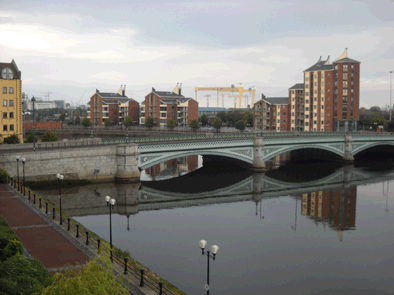Conflicting neighbourhoods and maritime traditions: does the waterfront regeneration help to re-design a peaceful future? Insights from Belfast
DOI:
https://doi.org/10.6092/2281-4574/2105Keywords:
Waterfront regeneration, divided cities, conflicting spaces, maritime memoriesAbstract
The globalization scenario has determined the rate of increasing of urban complexity: the city has become a process of densification and multiculturalism. The port cities, in particular, could be seen as the access points of a “melting pot” process, on the one hand, and as places where these dynamics have exacerbated problems and conflicts (Beguinot, 2009). This paper focuses on the potential of an approach centred on a maritime perspective in order to analyse and interpret conflicting dynamics in neighbourhoods whose residents show distinct cultural features.
A case study research method is adopted in order to capture the multi-faceted issues embedded in such a complex condition. This paper focuses onBelfast, which has been struggling for years with problems related to inter-religious sectarian conflicts. By applying a visual analysis combined with interactions with local communities, the relationships between the urban pattern and the waterfront are analysed, in order to show if and how the waterfront regeneration could be considered pivotal for contributing to the peace process. Further research will apply the results to different contexts, in order to generalize the approach at international level.
Downloads

Downloads
Published
Issue
Section
License
Gli autori che pubblicano su questa rivista accettano le seguenti condizioni:- Gli autori mantengono i diritti sulla loro opera e cedono alla rivista il diritto di prima pubblicazione dell'opera, contemporaneamente licenziata sotto una Licenza Creative Commons - Attribuzione che permette ad altri di condividere l'opera indicando la paternità intellettuale e la prima pubblicazione su questa rivista.
- Gli autori possono aderire ad altri accordi di licenza non esclusiva per la distribuzione della versione dell'opera pubblicata (es. depositarla in un archivio istituzionale o pubblicarla in una monografia), a patto di indicare che la prima pubblicazione è avvenuta su questa rivista.
- Gli autori possono diffondere la loro opera online (es. in repository istituzionali o nel loro sito web) prima e durante il processo di submission, poiché può portare a scambi produttivi e aumentare le citazioni dell'opera pubblicata (Vedi The Effect of Open Access).

